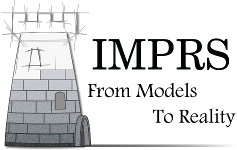Speaker
Description
Advances in generating intense unipolar half-cycle pulses have led to their use in efficient schemes to align and orient molecules as well as to engineer non-equilibrium states of matter. Herein we present preliminary results of a combined analytical and numerical study on the interactions of a 3D rigid rotor with half-cycle pulses efficiently modelled as narrow-width Gaussians. The added effect of the induced dipole interaction term is found to be non-negligible, and the resulting excitation dynamics of the combined interactions quite non-trivial. While the combination of the two interactions does not automatically result in a greater alignment or orientation, we discuss certain cases in which the two quantities may be enhanced when compared to a single interaction. Investigations of the time evolution of the probability densities (visualised as quantum carpets) and the concomitant orientation and alignment provide insights into the non-adiabatic — adiabatic threshold. Onset of adiabaticity is marked by the appearance of ‘resonances’ in the kinetic energy for specific values of the pulse width, a striking feature that is accounted for by considering a two-level analytic model in the weak-excitation limit.

